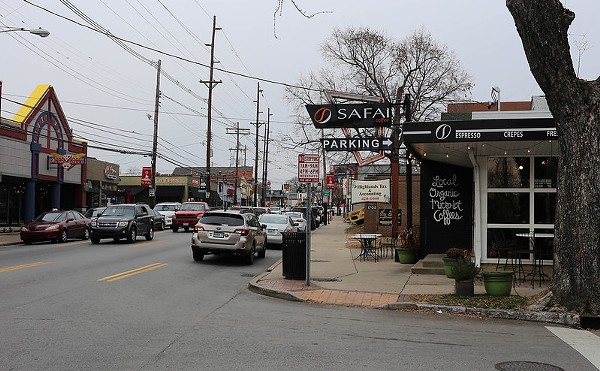Candycorn, turkey, fruitcake and eggnog. During the last two months of the year, we stuff our guts with an astounding number of calories. Yet in our fast-food, microwavable consumption of whatever is quickest and most convenient, we’ve become disturbingly disconnected from the food we eat, a point well illustrated by CEO David Novak’s recent positioning of Yum! Brands as a crusader against world hunger.
It is, however, in large part because we eat so much Yum!my food (and I mean that in an inclusive way, although I’m sure the CEOs of Mickey D’s and BK would shudder to think that we might consider their food so similar) that a whopping 65.2 percent of U.S. adults and 15 percent of children and adolescents are overweight. At the same time, 35.1 million Americans and 854 million people worldwide suffer from hunger.
The real irony is that many of Yum!’s low-wage-earning employees are likely among those who are unable to adequately feed their families and that it took Yum!’s subsidiary Taco Bell almost four years to increase wages and better working conditions for the farmers who grow the tomatoes needed for all that salsa while trying to feed their own families on poverty-level incomes, a battle still being waged with the folks at Burger King.
While Novak’s efforts are laudable on one level, hunger will not be solved by food banks and relief programs any more than the healthcare crisis can be solved by more people going to emergency rooms, a point well illustrated by the recent debate over the 2007 Farm Bill.
At issue is the subsidization of the production of foods that are high in fat and cholesterol rather than fruits, vegetables and grains. Between 1995-2004, less than .5 percent of agricultural subsidies went toward the production of fruits and vegetables. In a statement to the McClatchy Newspapers, Neal Barnard, president of the Physicians Committee for Responsible Medicine, sums it up, “Senators take millions from corporations that produce bacon, burgers and other fatty foods. Then Congress buys up these unhealthy products and dumps them on our school lunch program. Companies get rich, and kids get fat.”
The sad truth is that much of what we consume fits Gilda Radner’s immortal description of fruitcake — you don’t know what is in it and you don’t know where it came from. As food guru Frances Moore Lappe writes, “Every time we put a bite of food in our mouths, we put our lives into the hands of a supply chain of strangers.”
In trying to understand our disconnected, gastronomically absurd food habits, I went to talk to Annette, the woman who runs the Farmers’ Market at The Temple on U.S. 42. I mentioned to her that when I go to Kroger, more often than not, by the time I’m done, I’m in a pretty punchy mood, but when I come to her market, I always leave with a smile. That didn’t surprise her — she gleefully told me about a little boy who thought green beans grew in cans until he came across her fresh wax beans.
Annette (she prefers to use only her first name) has been farming since she was a little girl. All of what she grows is pesticide- and herbicide-free. She pointed out to me that when we use poisons to grow things, not only do we end up eating them, they also get into the water and end up all the way down in the Gulf of Mexico killing fish. She talked about classes she has taught at U of L and her thoughts about community gardens.
While she only farms 20 acres herself, she works with other farms both in Kentuckiana and around the country to provide a bountiful selection of produce. She considers both the farmers who sell to her and her customers to be her friends. Paying the farmers a fair price and selling healthy produce are an integral part of Annette’s market.
As she sees it, the root of our food-disconnect is in part due to our misperception that we can “own” the land. Instead, we should be caretakers of this precious resource. “The land has been abused; we’re takers, we’re not nourishers of the land that we call ‘ours,’” she says.
As we celebrate Thanksgiving, isn’t nourishment and connection the conversation we should be having about food and hunger? It makes a lot more sense to me than the fast-food-king-to-the-rescue kind of reasoning. Food, after all, should be, as Michael Pollan, author of “The Omnivore’s Dilemma” put it, a way to come together.
•••
(Almost) Disconnected Afterthought — I choked on my cereal a few weeks ago when The C-J set out to tar and feather Tina Ward Pugh and Rick Blackwell for holding hearings about 8664. Yes, it is late in the game, but it’s an idea worth a look/see, and the bottom line is that the bridge plan was conceived of when oil cost a whole lot less. As we get to the $100 a barrel mark, something no one thought possible back then, it is time to stop and re-think before we do something monumentally stupid. And it is about damned time we start listening to people like David Coyte and Jackie Green — better public transit and bike paths should be a part of any comprehensive transportation plan. Along with folks like Annette, these are the people of vision who we ought to call leaders, not the corporate shills who seem to have a stranglehold on our city.
Lucinda Marshall is a feminist artist, writer and activist. She is the Founder of the Feminist Peace Network,
www.feministpeacenetwork.org. Contact her at lucindamarshall@
feministpeacenetwork.org





